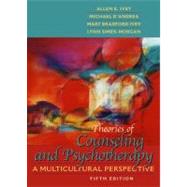
| About the Authors | iii | ||||
| Preface | xii | ||||
| Before You Get Started | xvii | ||||
|
1 | (24) | |||
|
1 | (1) | |||
|
2 | (6) | |||
|
8 | (2) | |||
|
10 | (5) | |||
|
15 | (2) | |||
|
17 | (1) | |||
|
18 | (4) | |||
|
22 | (1) | |||
|
22 | (3) | |||
| PART I Foundational Theories and Skills for Effective Counseling and Therapy | 25 | (68) | |||
|
27 | (27) | |||
|
27 | (1) | |||
|
28 | (7) | |||
|
35 | (3) | |||
|
38 | (4) | |||
|
42 | (2) | |||
|
44 | (4) | |||
|
48 | (1) | |||
|
48 | (3) | |||
|
51 | (3) | |||
|
54 | (39) | |||
|
54 | (1) | |||
|
55 | (2) | |||
|
57 | (18) | |||
|
75 | (3) | |||
|
78 | (5) | |||
|
83 | (7) | |||
|
90 | (3) | |||
| PART II The First, Second, and Third Forces in Counseling and Psychotherapy | 93 | (196) | |||
|
95 | (34) | |||
|
95 | (1) | |||
|
96 | (3) | |||
|
99 | (2) | |||
|
101 | (8) | |||
|
109 | (3) | |||
|
112 | (3) | |||
|
115 | (4) | |||
|
119 | (6) | |||
|
125 | (1) | |||
|
125 | (4) | |||
|
129 | (23) | |||
|
129 | (1) | |||
|
130 | (4) | |||
|
134 | (2) | |||
|
136 | (4) | |||
|
140 | (3) | |||
|
143 | (2) | |||
|
145 | (1) | |||
|
146 | (2) | |||
|
148 | (2) | |||
|
150 | (2) | |||
|
152 | (41) | |||
|
152 | (1) | |||
|
153 | (1) | |||
|
154 | (3) | |||
|
157 | (4) | |||
|
161 | (5) | |||
|
166 | (24) | |||
|
190 | (1) | |||
|
190 | (3) | |||
|
193 | (40) | |||
|
193 | (1) | |||
|
194 | (1) | |||
|
195 | (1) | |||
|
196 | (10) | |||
|
206 | (12) | |||
|
218 | (7) | |||
|
225 | (4) | |||
|
229 | (1) | |||
|
230 | (3) | |||
|
233 | (29) | |||
|
233 | (1) | |||
|
234 | (3) | |||
|
237 | (5) | |||
|
242 | (11) | |||
|
253 | (5) | |||
|
258 | (1) | |||
|
259 | (3) | |||
|
262 | (27) | |||
|
262 | (1) | |||
|
262 | (1) | |||
|
263 | (11) | |||
|
274 | (11) | |||
|
285 | (1) | |||
|
285 | (4) | |||
| PART III Multicultural Counseling and Therapy: The Fourth Force | 289 | (154) | |||
|
291 | (38) | |||
|
291 | (1) | |||
|
292 | (4) | |||
|
296 | (1) | |||
|
296 | (10) | |||
|
306 | (12) | |||
|
318 | (7) | |||
|
325 | (1) | |||
|
325 | (4) | |||
|
329 | (34) | |||
|
329 | (1) | |||
|
330 | (1) | |||
|
331 | (4) | |||
|
335 | (6) | |||
|
341 | (4) | |||
|
345 | (3) | |||
|
348 | (3) | |||
|
351 | (9) | |||
|
360 | (1) | |||
|
361 | (2) | |||
|
363 | (27) | |||
|
363 | (1) | |||
|
364 | (4) | |||
|
368 | (9) | |||
|
377 | (1) | |||
|
377 | (7) | |||
|
384 | (3) | |||
|
387 | (1) | |||
|
388 | (2) | |||
|
390 | (39) | |||
|
390 | (1) | |||
|
390 | (1) | |||
|
391 | (3) | |||
|
394 | (2) | |||
|
396 | (4) | |||
|
400 | (4) | |||
|
404 | (1) | |||
|
405 | (18) | |||
|
423 | (2) | |||
|
425 | (4) | |||
|
429 | (14) | |||
|
429 | (1) | |||
|
429 | (1) | |||
|
430 | (3) | |||
|
433 | (4) | |||
|
437 | (3) | |||
|
440 | (3) | |||
| Name Index | 443 | (6) | |||
| Subject Index | 449 |
The New copy of this book will include any supplemental materials advertised. Please check the title of the book to determine if it should include any access cards, study guides, lab manuals, CDs, etc.
The Used, Rental and eBook copies of this book are not guaranteed to include any supplemental materials. Typically, only the book itself is included. This is true even if the title states it includes any access cards, study guides, lab manuals, CDs, etc.